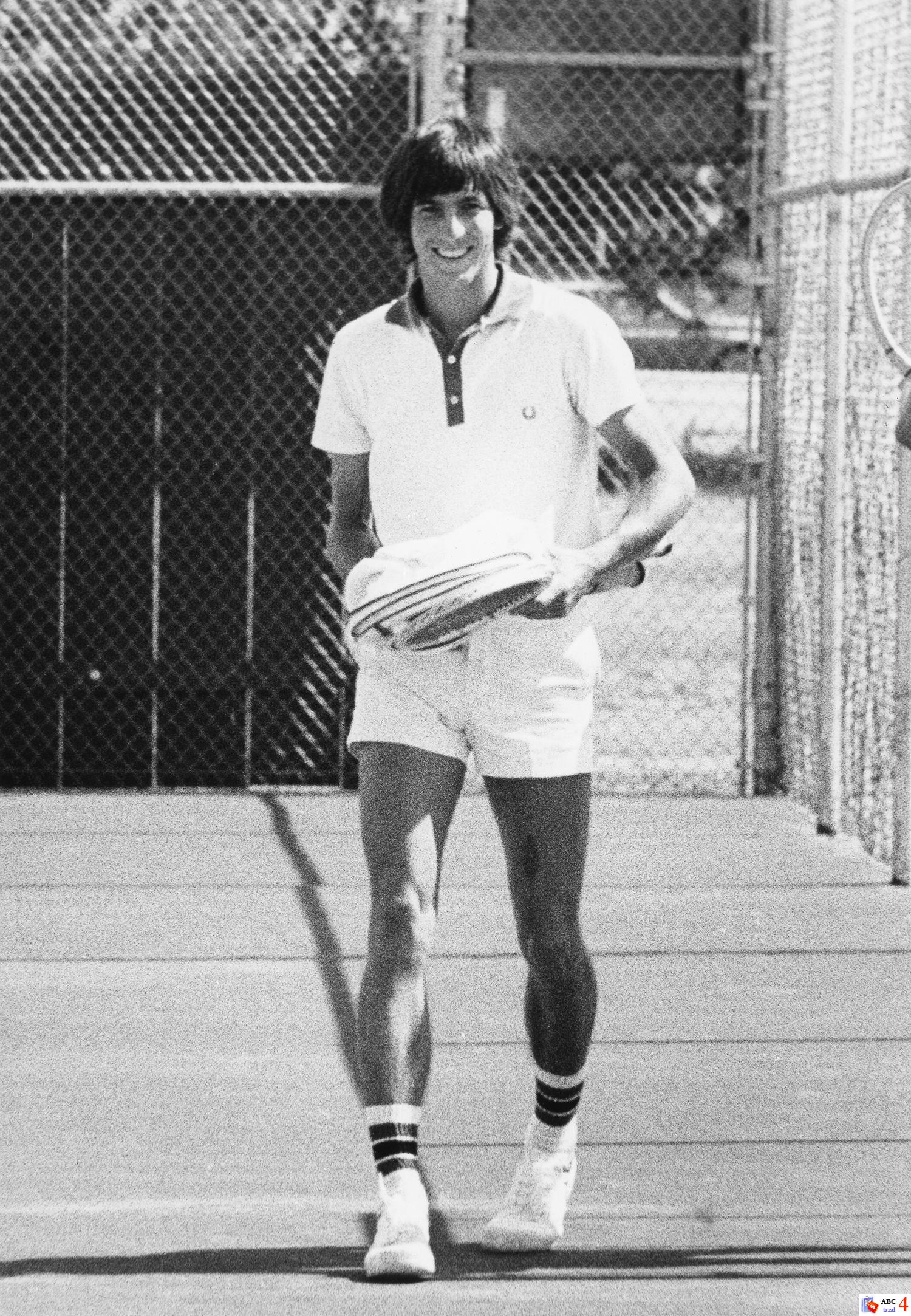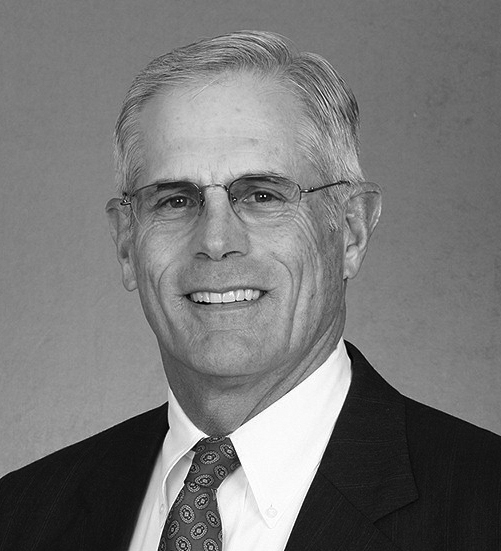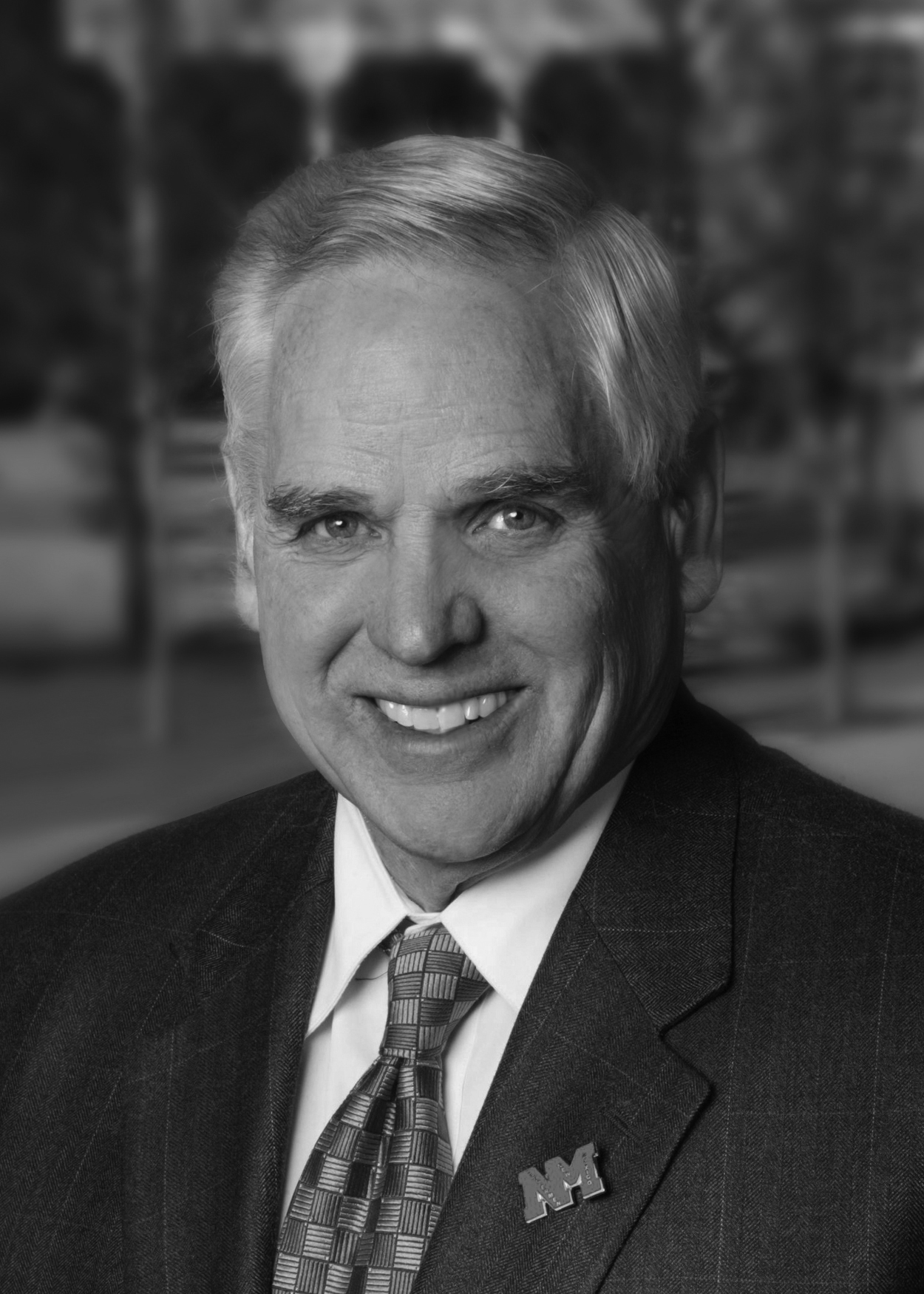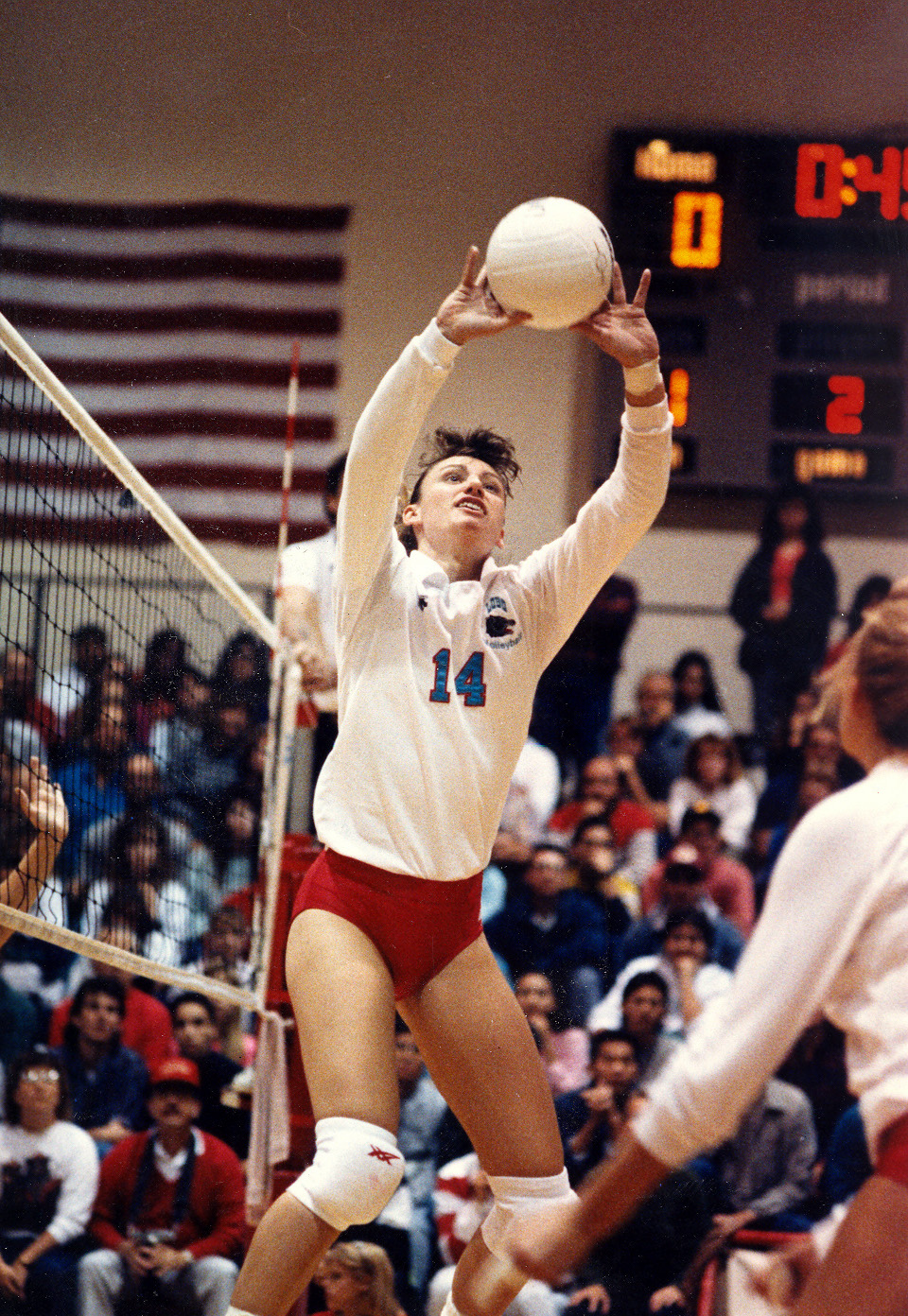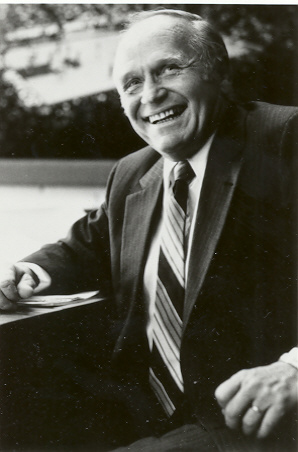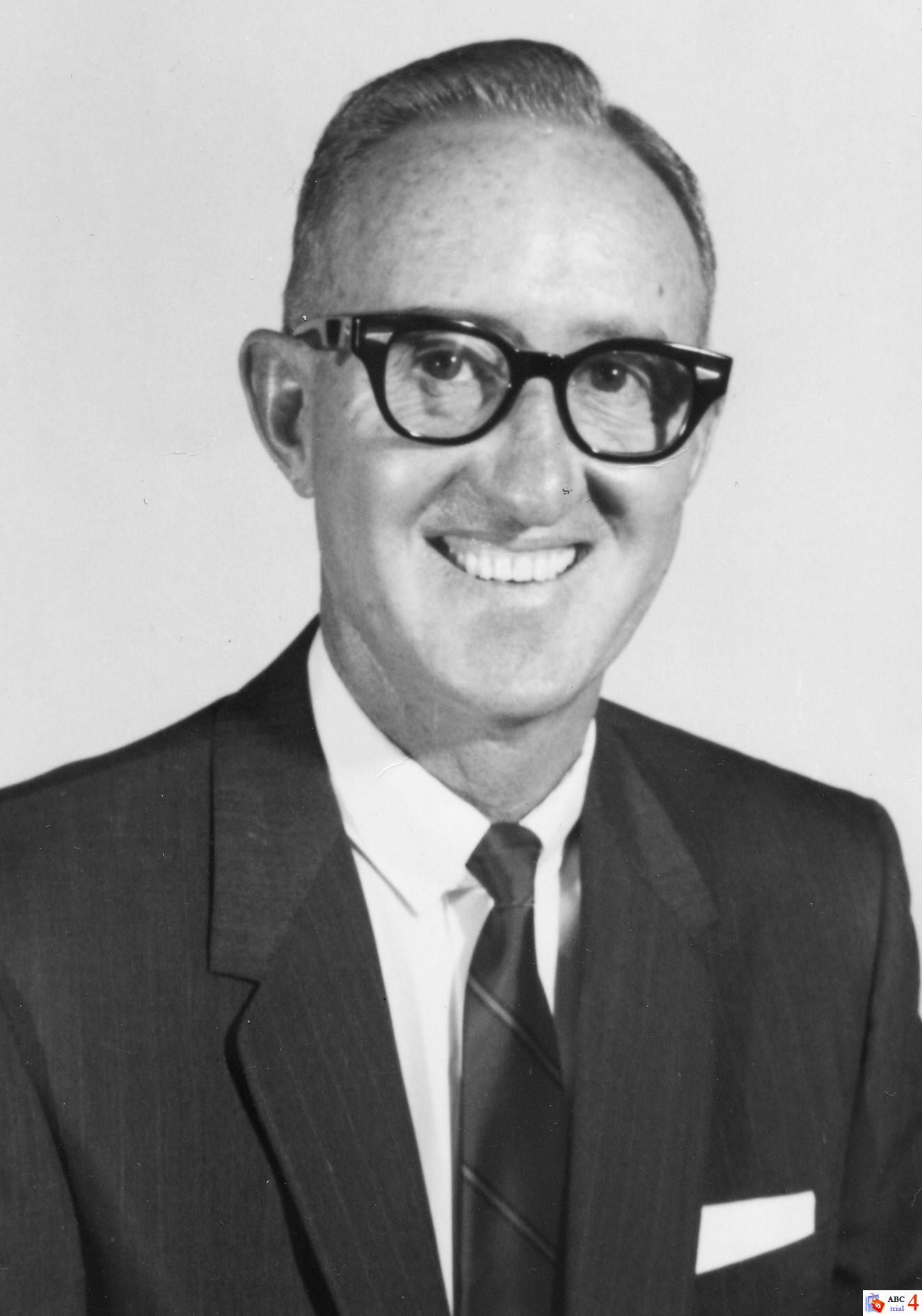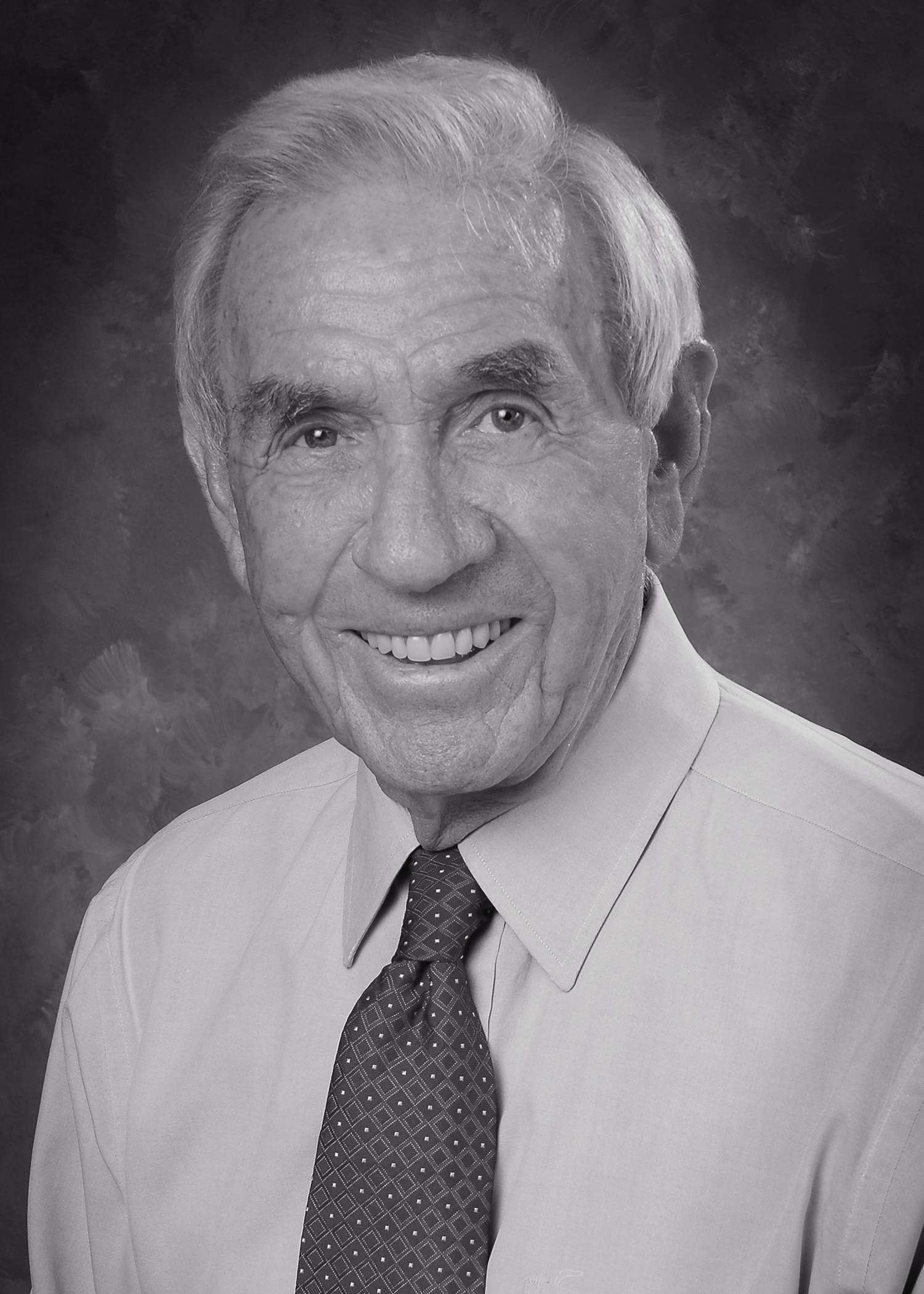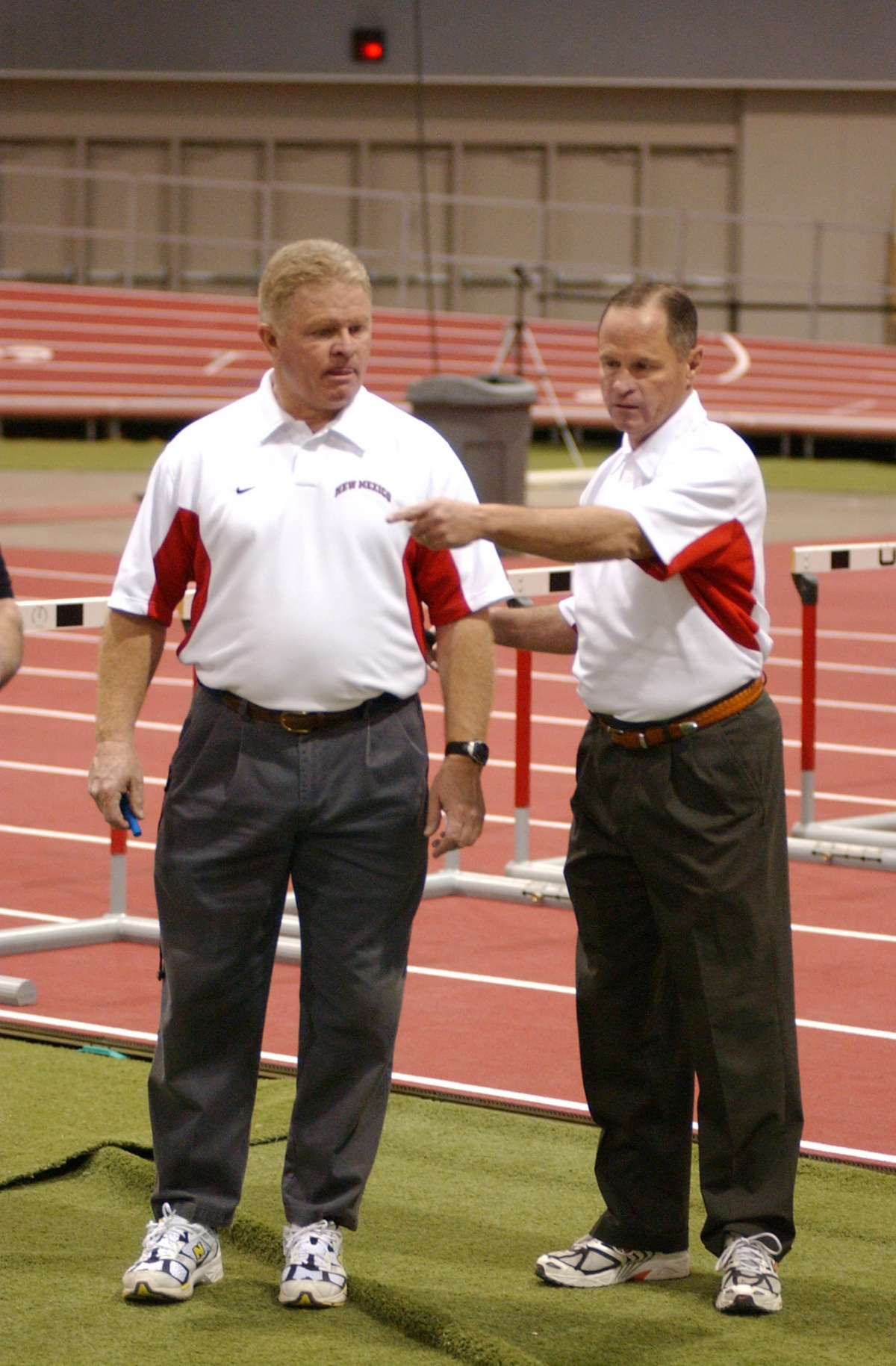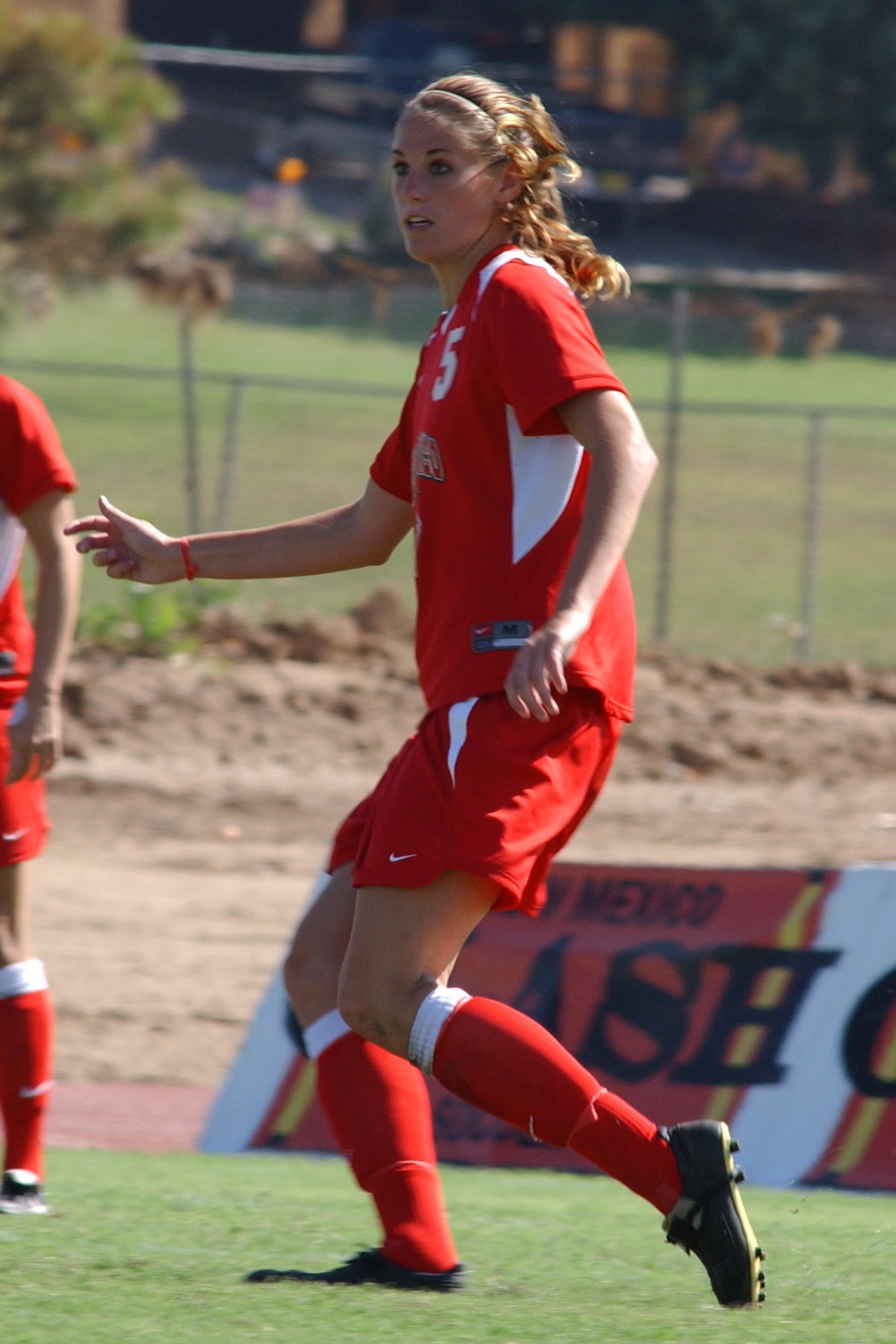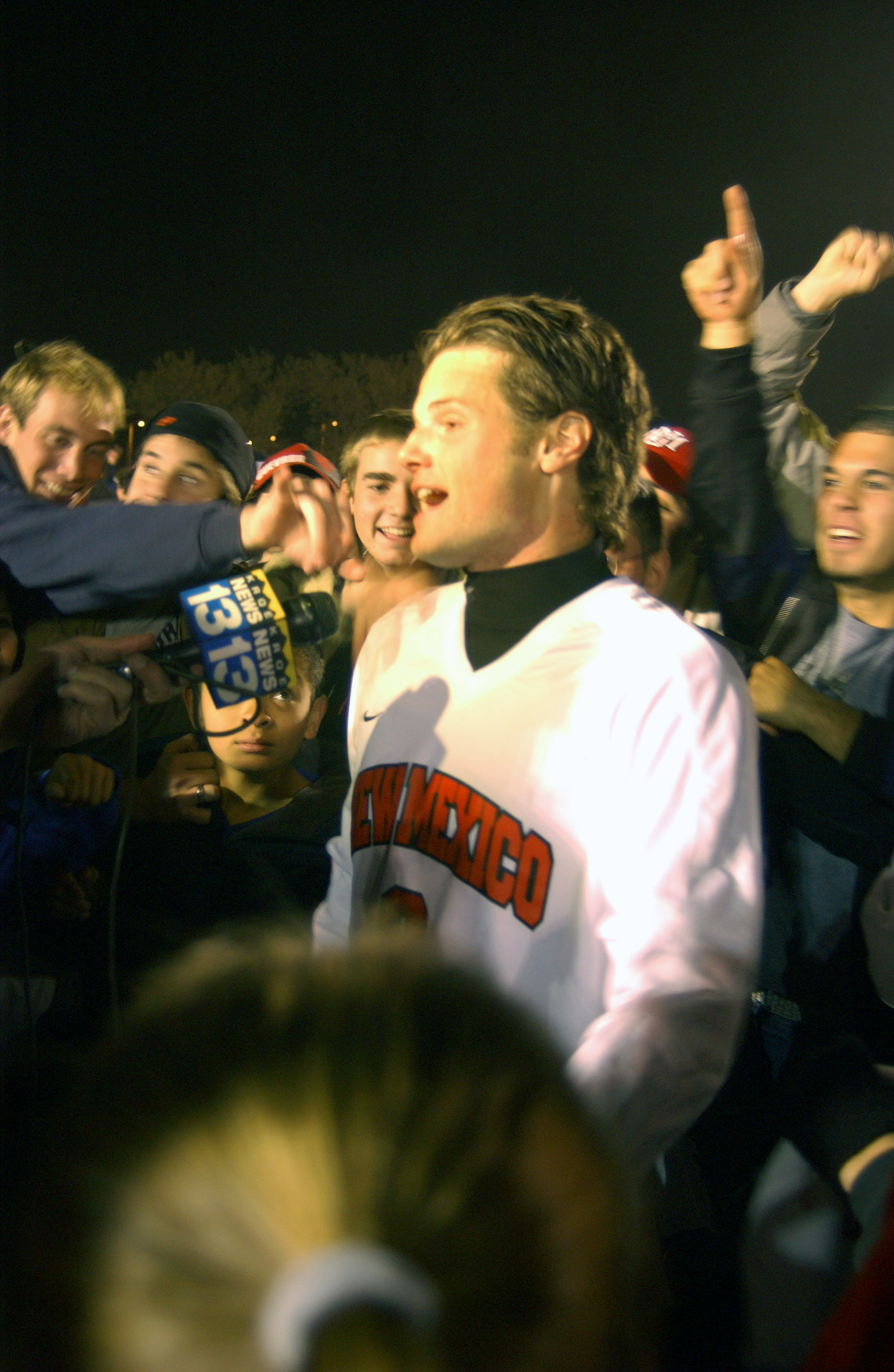- Greg Brown
- Greg Brown
Remember, you’re too small to play basketball, especially NCAA Division I basketball. Bunk! That’s essentially what Greg Brown told those people who thought he was not big enough to play a game controlled by giants. Brown demonstrated that a 5-foot-7 guard could get the job done. He did so by taking the Lobos all the way to the 1993-94 Western Athletic Conference championship by beating BYU 79-72 in overtime…at Provo. It was UNM’s first conference title in 16 years.
Praise rang from all over the country for Brown, a 1990 graduate of Albuquerque High School, progressed through his senior year. During his impressive career, Brown scored 30 or more points four times, including a career-high 42 points – in 34 minutes – against Texas-El Paso. For all his efforts, Brown was named Western Athletic Conference and District 7 Player of the Year in 1993-94. He garnered honorable mention All-America recognition from the United States Basketball Writers and The Sporting News.
Brown saved his biggest game for BYU. In the title-clinching victory at Provo, the next-to-last-game of the regular season, Brown was awesome. He scored 34 points with 28 of those coming in the second half and in overtime. Brown scored 20 of the Lobos’ final 28 points, including 12 straight at one point. His three free throws – after drawing a 3-point foul with six seconds left in regulation – sent the game into overtime.
The crowning moment of Brown’s collegiate career and the jewel in his trophy case was receiving the Frances Pomeroy Naismith Award, given annually to the best player in the nation under six-feet.
Brown completed his college education at UNM with a bachelor’s degree in University Studies with an emphasis in Political Science. In 2005, Brown earned a master’s in Sport Administration. Brown commented, “The money I made from the book my mother wrote about my basketball career, The Little Point Guard, The Greg Brown Story: A Mother’s Perspective, helped to pay my graduate tuition at UNM.”
Not only was Brown an exemplary college athlete, he has carried on his life by giving back to his hometown. Brown is a firm believer in giving of himself; his list of community service is daunting. He visits sick children, organizes basketball clinics for youth, encourages students to “stay on track,” cautions youth against drugs and has volunteered countless hours as a coach, advocate and mentor. Brown has been employed by the City of Albuquerque as a Recreation Service Manager and Community Center Supervisor, where he uses his leadership skills honed during his athletic career.
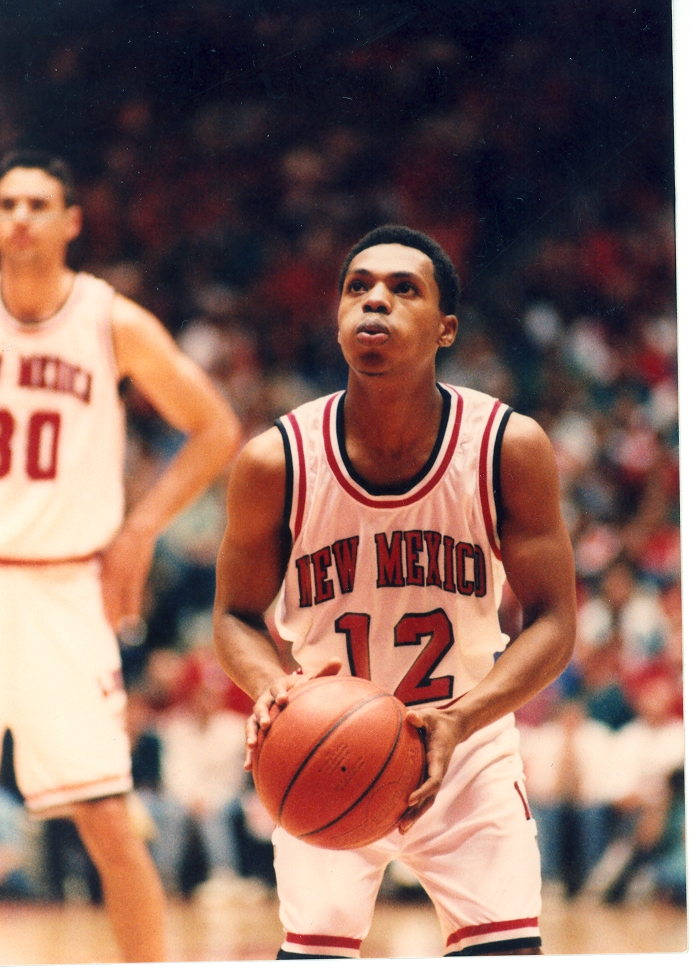
- Tim Garcia
- Tim Garcia
Tim Garcia picked up a tennis racquet at the age of five but it would be until the age of 15 that he began to play tennis competitively. Tim learned his trade at the Albuquerque Tennis Club where, during that era, many young athletes decided up on tennis as their major sport.
Tim remains one of UNM’s most prolific and decorated tennis players. He was the only UNM player to participate in the NCAA Championships all four years of his college career. Garcia earned All-America honors in 1976 and reached the semifinals of the singles draw at the NCAAs. He faced Stanford’s John McEnroe at the 1978 NCAA Championships. Garcia won the Western Athletic Conference singles title in 1975 and ’76 and was a four-time all-conference selection.
Garcia credits his success to many Lobo standouts that were inspirational in his young career: Phil “Bubba” Lindsay, Tim and Ted Russell, Van Hill and Tony Bull.
After college, Garcia volleyed his way to the professional circuit for three years, reaching a ranking of No. 130 and No. 54 in international doubles. He played in the U.S. Open, French Open and the Australian Open.
Following a successful tennis career, Garcia followed in his father’s legal footsteps and earned a law degree from UNM. He became a highly respected attorney and has contributed to his communities in a variety of ways. Garcia eventually became a Judicial District Court Judge in Northern New Mexico.

- Mark Johnson
- Mark Johnson
Mark Johnson grew up in Las Vegas, New Mexico where he was an outstanding football and baseball player at Robertson High. He entered the University of New Mexico where he enjoyed success as an outfielder, earning All-WAC honors during his career from 1963-67.
Johnson earned a bachelor’s degree in science and physical education from UNM, then returned to complete a master’s in recreation and physical education. He headed east to play professional baseball in the New York Mets organization from 1967-69. Mark then began his lifelong passion of coaching young men.
His first teaching and coaching stint was at UNM, followed by 15 seasons as an assistant at Arizona, Mississippi State and Texas A&M. IN 1984, he became Texas A&M’s head coach, a position he held for 21 years. He became had coach at Sam Houston State in 2006.
Johnson left A&M as the school’s career leader in wins, plus captured five conference titles, three NCAA Regional championships and two appearances in the College World Series (1993 and ’99).
Johnson placed 36 players in Major League Baseball and coached 39 All-Americans.
Johnson was national coach of the year by The Sporting News in 1999 and a six-time pick for conference coach of the year. He inducted into the American Baseball Coaches Hall of Fame in 2001, Texas Baseball Hall of Fame in 2002, and received the Fellowship of Christian Athletes Jerry Kindall Character in Coaching Award in 2007.

- Jamie Koch
- Jamie Koch
You might say that UNM is in Jamie Koch’s blood. His grandfather taught here. His mother graduated from the College of Education in 1918. He met his wife Nene near today’s Duck Pond. And Jamie graduated from the College of Education in 1959.
Jamie grew up in Santa Fe and has been socially and politically active throughout his career. His list of accomplishments is as long as it is diverse: state legislator 1968-74, member of the Santa Fe Chamber of Commerce, founding member of the New Vistas School for the Handicapped, Chair of the New Mexico Game and Fish Commission, leading fundraiser for March of Dimes and United Way, New Mexico Democratic Party Chair, President of the Alumni Lettermen’s Club, member of the Alumni Association Board, and President of the UNM Board of Regents.
Jamie arrived at UNM on an athletic scholarship to play football and wrestle his sophomore year.
Still active in sports, Jamie set new records in his age group in the shot put in five states as well as at the Huntsman World Games, the National Senior Olympics and the World Games in Canada. In 2005 he won the competition in the European Games in San Sebastian, Spain. Also in 2005, Jamie tossed his 11-pound shot put far enough to be ranked No. 2 in the world in both indoor and outdoor competitions. The following year, he earned All-American Honors from the USA Masters Track and Field.
The awards bestowed on Jamie have been as diverse as his accomplishments. In addition to his numerous athletic awards he has had a day-use area in the Pecos named for him in honor of his work to get the Terrero Mine, which threatened the Pecos River, cleaned up and the William S. Dixon Award from the New Mexico Foundation for Open Government for his work on the Open Meetings Act.
As chair of the Board of Regents, Jamie has championed issues he cares about, including athletics (legislative funding to finish the north end of the stadium, construct an indoor practice football field, build an outdoor track, renovate The Pit, construct the Rudy Davalos Basketball Center and build a resource center for student-athletes) and the new UNM Children’s Hospital.

- Pauline Manser
- Pauline Manser
This the second time around for Pauline Manser. In 1992, the UNM Hall of Honor recognized Manser as the first ever Female Athlete of the Year.
Manser was recruited to UNM from Perth, Australia and lettered in volleyball from 1987-91. She was a setter and outside hitter and one of the Lobos’ most distinguished players in school history. Laurel Brassey Iversen, Manser’s coach at UNM and a Hall of Honor inductee in 2001, said, “Pauline was the most dominating athlete to play volleyball for UNM and one of the best volleyball players in the USA.”
Manser was a two-time All-American at UNM and led the 1990 Lobo to a perfect 12-0 record and a Western Athletic Conference title. As a senior in 1991, Manser was the WAC Player of the Year and the WAC Player of the Week five times. She graduated cum laude in 1991 with a degree in recreation.
After here playing days at UNM were over, Manser played in the German Professional League, and was also a member of the World Beach Volleyball Australian Team for 10 years (1986-96). She won a silver medal at the 1998 Goodwill Games and finished fifth at the 2000 Summer Olympics in Sydney as part of the Australian Beach volleyball team. Manser has played 31 World Tour events with four top-four finishes and 23 in the top-10.

- John Bridgers (posthumous)
- John Bridgers (posthumous)
John Bridgers, who passed away in 2006, served as the University of New Mexico’s Director of Athletics from 1979-87. Bridgers led the UNM athletics program in the aftermath of one of its most infamous periods in history – Lobogate. In the turmoil that followed the scandal, Bridgers hired many fine coaches and restored integrity and respectability to UNM athletics.
In Bridgers’ first full season at UNM (1980-81), the Lobos finished dead last in the Western Athletic Conference’s 11-sport composite rankings. New Mexico jumped to fifth place overall a year later and then to fourth place in 1982-83. Beginning in 1983, UNM began an unprecedented stretch of four straight second place finishes in the conference rankings. Bridgers brought in basketball coach Gary Colson to restore the UNM basketball program. He also set out to elevate the status of the UNM football program in a city that was basketball dominated. Bridgers hired former New York Giants running back Joe Morrison in 1980, and two years later the Lobos had the winningest football season in school history (10-1).
Bridgers personally raised over $1 million in private contribution for use in both the men’s and women’s programs and he gathered $500,000 from the private sector in 1985 to help build a new track on the east side of the football stadium. Thanks to his stewardship, the Lobo athletics department was able to restore credibility to UNM athletics. This is the second time Bridgers has been recognized by the UNM Alumni Lettermen’s Association; he was awarded honorary lettermen status in 1999.
Bridgers began his career as an assistant coach at the University of the South in Sewanee, Tenn., (1947–51), was head coach for the First Cavalry Division Artillery Team in Hokkaido, Japan (1952) and was head football and track coach at Johns Hopkins in Baltimore from 1953-56.
In 1957 and 1958 he served as a coach/coordinator for the Baltimore Colts, where he developed their pro-style offense attack. Bridgers spent 10 seasons (1959-68) as head coach at Baylor. In his first five seasons, he led the Bears to three bowl games, winning two. Bridgers spent a year on Chuck Noll’s first Pittsburgh Steelers staff, where he urged the coach to consider drafting a player he tried to recruit for Baylor, a quarterback named Terry Bradshaw. After the Steelers took Bradshaw with the first overall pick in the 1970 draft they won four Super Bowls in the next decade.
After Bridgers left Pittsburgh for an assistant’s job at South Carolina, he became athletics director at Florida State in the early 1970s. Despite inheriting a $1 million athletic deficit, he turned the program around with the single most important hire in school history, convincing another talented coach from Alabama, Hall of Famer Bobby Bowden to leave West Virginia for the Seminoles.

- Bill Stockton (posthumous)
- Bill Stockton (posthumous)
A fixture in education and coaching throughout the state of New Mexico for more than 35 years, Bill Stockton was born on a family ranch in Forrest, N.M., on July 20, 1913. He attended Forrest High School, leading the school to the 1933 state basketball championship and earning player of the year honors.
Stockton also lettered in football and track. A noted sprinter, legend has it that Stockton was a teenage legend in Curry County reportedly for defeating a horse and rider in a 100-yard dash – split into two 50-yard segments across a football field and around a goalpost.
Stockton attended the University of New Mexico on a basketball and track scholarship. He was team captain of the freshman basketball team and a three-year varsity letterwinner for head coach Roy Johnson from 1935-37. Stockton was named all-Border Conference as a junior when he led the league in scoring. He was also a stellar quarter-miler for head track coach Gwinn Henry.
Stockton received his bachelor’s degree from UNM in 1937 and a master’s degree from Eastern New Mexico.
Stockton’s coaching career began in his hometown of Forrest in the fall of 1937. Just 24 years old, Stockton began a storied and diverse career as a coach and educator.
After successful coaching stops at Floyd and Tatum, Stockton moved to Melrose where he led the Buffaloes to the 1944 state championship.
Stockton’s coaching prowess really took off when he took over the top spot at Clovis High School in 1946. In nine seasons, the Wildcats advanced to the state basketball tournament five times, winning the championship in 1951 and 1953. Stockton was named New Mexico High School Coach of the Year following the 1954 season as his little-regarded Clovis team claimed second in the state.
Stockton returned to his alma mater in the spring of 1955 to take over the Lobo program. Although UNM did not enjoy the prosperity that Stockton had produced in the prep ranks, Stockton did recruit and coach one of the great Lobos of all-time. Santa Fe native Toby Roybal set the Lobo single-game scoring record of 45 points in a 1956 game against Montana, a mark that stood for nearly 21 years.
Stockton, the last University of New Mexico of graduate to coach the Lobos in men’s basketball, guided the program for three seasons from 1955-58 before moving on to Las Cruces. He became an assistant coach under Presley Askew at New Mexico State, and then finished his career as a teacher and administrator in the Las Cruces school system.
Stockton retired in 1971.
Stockton’s long-time service was recognized in 1980 when he was inducted into the New Mexico Activities Association Hall of Fame. He also served as President of the State High School Coaches Association.
Outside of sports, Stockton was a valuable resource to the state’s leaders. He was appointed to the New Mexico Real Estate Commission by Gov. Bruce King and to the Board of New Mexico Economic Development by Gov. Jerry Apodaca.
Stockton passed away Jan. 11, 1994, in Clovis.

- Weldon Hunter Distinguished Service Award
- Weldon Hunter Distinguished Service Award
• Founder and President of Hunter Lumber Company
• Supporter of Lobo athletics, the Lobo Club and the UNM Alumni Lettermen’s Association
• Supplied building materials from his business toward numerous projects, including stands, indoor equipment room and a patio for the Lobo Tennis Club
• Two-sport lettermen (track and football) at UNM, graduating in 1953
• Board member of the UNM Alumni Lettermen’s Association and the Lobo Club

- Matt and Mark Henry Coaches of the Year
- Matt and Mark Henry Coaches of the Year
• Completed their seventh and final season in 2006-07
• 25 school records were set during their tenure from 2000-07
• 18 UNM athletes advanced to NCAA Indoor and Outdoor Championships, while 27 event titles were won in MWC competition
• Men’s cross country placed ninth at the 2004 NCAA Championships
• Both are UNM graduates, Mark in 1974, Matt in ‘75

- Jodi Ewart Female Athlete of the Year
- Jodi Ewart Female Athlete of the Year
Golf
• Named 2nd team All-American as a freshman
• Mountain West Conference co-Player of the Year and Freshman of the Year after winning the individual title at the league championships
• Set school scoring record with a 73.35 stroke average
• Had six top-10 finishes

- Ashley Lowery Female Athlete of the Year
- Ashley Lowery Female Athlete of the Year
Soccer
• Four-year starter at defender and team captain as a senior when she was first team all-MWC
• 74 career games played, 71 starts and more than 6,500 minutes played
• MWC Scholar Athlete award all four years
• Graduated from UNM in just three-and-a-half years with a 3.90 cumulative grade-point-average, majoring in psychology with a minor in family studies

- Lars Loseth Male Athlete of the Year
- Lars Loseth Male Athlete of the Year
Skiing/Soccer
• Mountain West Conference Male Student-Athlete of the Year in 2006-07
• Two-sport star who competed on the UNM ski and soccer teams
• Four-time All-American skier, two-year member of the nationally ranked soccer team and a three-time Academic All-American
• Helped UNM to the 2004 NCAA skiing championship and was a key member of the 2005 soccer team that finished second in the nation

